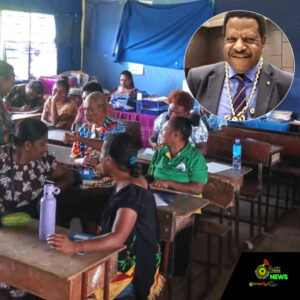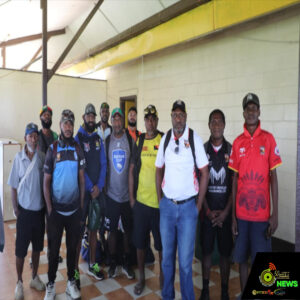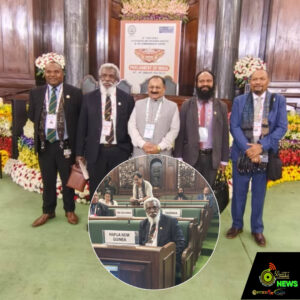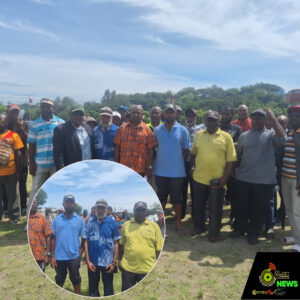A SECOND CHANCE AT LIFE| MARCELLA’S JOUNEY TO HEALING
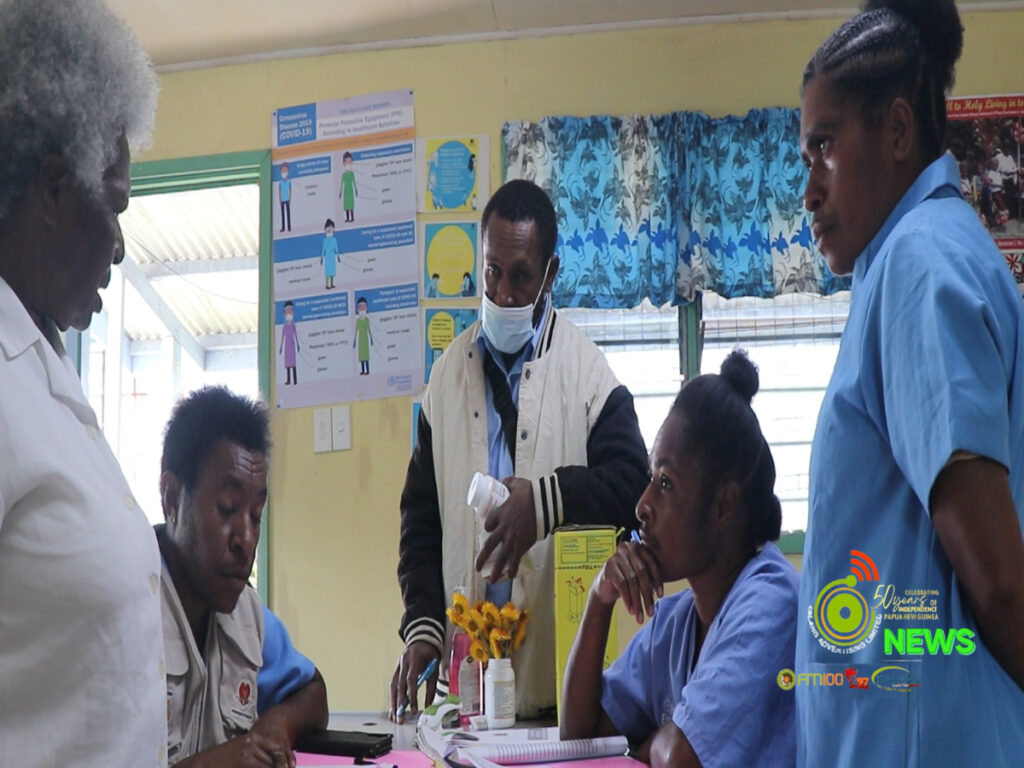
Epeanda Urban Clinic, located in Southern Highlands Province, stands as a beacon of hope for many, providing integrated healthcare that ensures individuals receive timely and holistic clinical services.
Through the Sexual & Reproductive Health Integration Project (SRHIP), the clinic has strengthened its capacity to diagnose and manage HIV and other sexually transmitted infections (STIs), offering life-saving interventions to those in need.
One such patient is Marchella Andrew, a 28-year-old woman from Karinz, Mendi Munhiu electorate, who had been battling a mysterious illness that worsened with each passing month. She first noticed severe facial rashes that spread aggressively across her face and body.
Seeking help from various clinics and hospitals in Western Highlands Province, she was repeatedly diagnosed with skin infection and given antibiotics and creams, yet nothing worked. Desperate for relief, she turned to over-the-counter medications, but her condition only deteriorated further.
As her illness became unbearable, affecting her ability to care for her family and live a normal life, she decided to travel to Mendi, Southern Highlands Province, in search of proper medical care. At Epeanda Urban Clinic, she was attended to by Nicholas Philip, a trained health worker.
Epeanda Urban Clinic is among the 13 Catholic Church Health Services (CCHS) facilities implementing the Sexual & Reproductive Health Integration Project (SRHIP), a program of the Australian Government which CCHS is implementing in partnership with ASHM, Burnet Institute, and Igat Hope PNG.
The project ensures that health facilities provide holistic and integrated services, reaching those who need them most.
Upon seeing her, Nicholas could hardly recognize her facial features due to the severe red rashes and swelling. Sensing the urgency of her condition, he immediately took her medical history and performed an HIV Determine test. Within 15 minutes, the result was reactive.
To confirm the diagnosis, Nicholas referred her to the Epeanda Voluntary Counseling and Testing (VCT) site, where she underwent further tests using ABON and Genie Fast kits. Both results confirmed she was HIV-positive.
For a moment, her world stood still. The weight of the diagnosis was overwhelming, but Nicholas’ pre-and post-test counseling reassured her that treatment was available and that she could regain her health.
Without delay, she was started off on Antiretroviral Therapy or (ART), along with medications for STIs, fluconazole, and albendazole to address other infections. Nicholas carefully explained the importance of faithfulness to ART, preparing her for potential side effects and encouraging her to remain committed to the treatment.
Behind the success of cases like Marchella’s is the guidance and mentorship of Maria Koke, the Master Mentor for HIV and STI services. Her expertise has been instrumental in training health workers like Nicholas, ensuring that they deliver high-quality counseling, testing, and treatment services.
Two months later, Marchella returned for her scheduled review appointment. The transformation was remarkable—her skin had cleared, she looked healthy, and she was more energetic. With a smile, she shared her gratitude:
“I am married to a Western Highlander and have a child. We were happily living together until I got sick. I sought help in many clinics and hospitals in Western Highlands, but they only treated my symptoms. It was only when I came to Epeanda that I finally discovered the root cause of my illness. I am so grateful that I was properly diagnosed, treated, and given a second chance at life.”
Today, Marchella is one of over 600 patients actively receiving treatment at the Epeanda VCT site, which has more than 1,600 registered clients.
The integration of HIV services within the main urban clinic has improved accessibility to testing and treatment, ensuring that more people receive timely and comprehensive care.
Her journey highlights the critical importance of early testing and accurate diagnosis. If she had continued receiving only symptomatic treatment, her health would have worsened, potentially leading to life-threatening complications.
Health workers play a vital role in ensuring that patients undergo proper investigations and receive lifesaving interventions. However, challenges persist. Shortages of HIV test kits sometimes delay diagnosis and treatment.
Confidentiality concerns arise when family members demand to know a patient’s diagnosis. Geographical barriers also prevent many from accessing healthcare services on time.
To strengthen service delivery, Nicholas and the Epeanda Urban Clinic team emphasize the need for a consistent supply of HIV test kits, continued training and mentorship for health workers, and an expansion of Provider-Initiated Counseling and Testing (PICT) for all patients visiting the clinic.
Marchella’s story is a testament to the power of integrated healthcare services. It is a reminder that with early detection, proper treatment, and compassionate care, every patient deserves a second chance at life.
Note: The patient’s name was changed to protect her right to privacy.

